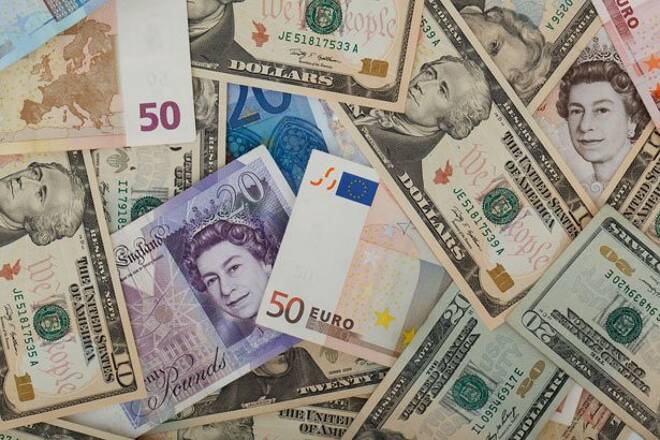Advertisement
Advertisement
Central Bankers Drive the Dollar and the Pound
By:
Another quiet day on the economic calendar leaves central bankers in the spot light once more, with the Dollar having found support off FOMC voting member
Another quiet day on the economic calendar leaves central bankers in the spot light once more, with the Dollar having found support off FOMC voting member Dudley’s hawkish commentary on Monday, who warned against the FED taking a slower pace of lifting rates, the NY FED President talking up the U.S economy and brushing aside a flattening to the yield curve over concerns of a possible economic slowdown.
Dudley was joined with voting member Evans, who also spoke on Monday, though Evans took a more cautious approach, looking to downplay the market focus on the number of rate hikes, the Chicago FED President simply highlighting his support for a gradual increase in interest rates coupled with a slow reduction in the FED’s balance sheet.
Recent commentary, which included voting member Kaplan’s concerns over inflation and Kashkari’s disagreement with the FED Chair’s sentiments on weak inflation being attributed to ‘one-offs’ is certainly a reflection of how divided the FED has become once more on monetary policy, though voting member Kashkari’s position can be taken as a given, the dovish comments having little influence on the Dollar, Kashkari being one of the more, if not most, dovish member of the FOMC.
The Dollar Spot Index certainly responded to Dudley’s outlook, which coincided with support for the Dollar through the day, leading to the EUR falling well below $1.12 levels and the recent ranges. Through the early part of the day, the Dollar has managed to hold on to the positive sentiment, with the Dollar Spot Index up 0.01% at 97.562 at the time of the report, with macroeconomic data out of the U.S limited to 1st quarter current account numbers, while FOMC non-voting member Rosengren is also scheduled to speak
We expect the current account numbers to have an influence on the Dollar, the markets having little else to consider, following FED Vice-Chair Fischer’s comments this morning, who refrained from talk on monetary policy, focusing more on the housing sector and concerns over the rising house prices and debt amidst the currently low interest rate environment, the comments having little influence on the Dollar or the markets at the time of the report.
Across the pond, things were certainly more volatile, with Carnage Carney doing his part with the pound, the BoE Governor downplaying any hopes of a near-term rate hike, driving cable down 0.52% to $1.26776. Unsurprisingly, Carney spoke of weak wage growth and the strength of domestic inflationary pressures, coupled with uncertainty over how the UK economy would play out as talks between the UK government and the EU kick off on the terms under which Britain will leave the EU.
Despite the pound’s demise upon Carney’s comments, the BoE Governor did acknowledge that MPC member tolerance to surging inflation was coming to an end and in the end, which perhaps suggests that a move could come sooner than the markets perhaps priced in at the time of the report, Carney having added that any changes to interest rates would not only be limited, but also gradual.
While support for the Dollar is certainly evident, we would expect the EUR and the pound to recover from intraday losses, the pound also under the influence of the UK government and Brexit talks, the greater the positive sentiment from talks, the less concern of a negative effect on the UK economy. For the EUR, the demise through the week comes despite economic indicators continuing to support a positive economic outlook, Draghi’s position cemented, leaving the markets torn between sentiment towards monetary policy and the outlook for economic growth.
About the Author
Bob Masonauthor
With over 28 years of experience in the financial industry, Bob has worked with various global rating agencies and multinational banks. Currently he is covering currencies, commodities, alternative asset classes and global equities, focusing mostly on European and Asian markets.
Advertisement
